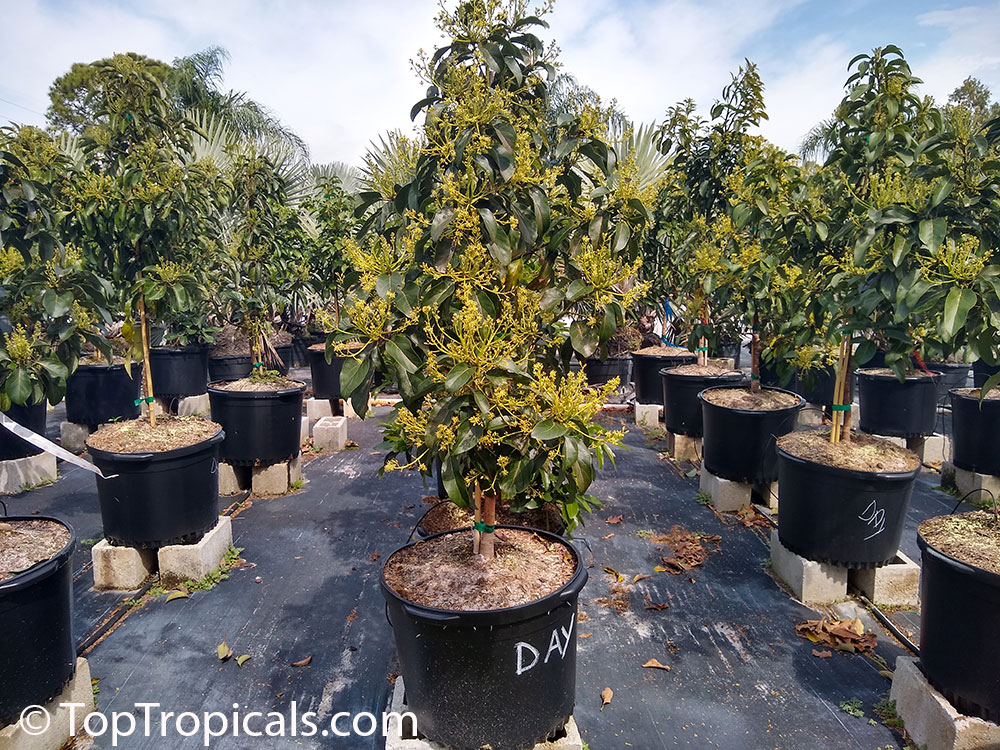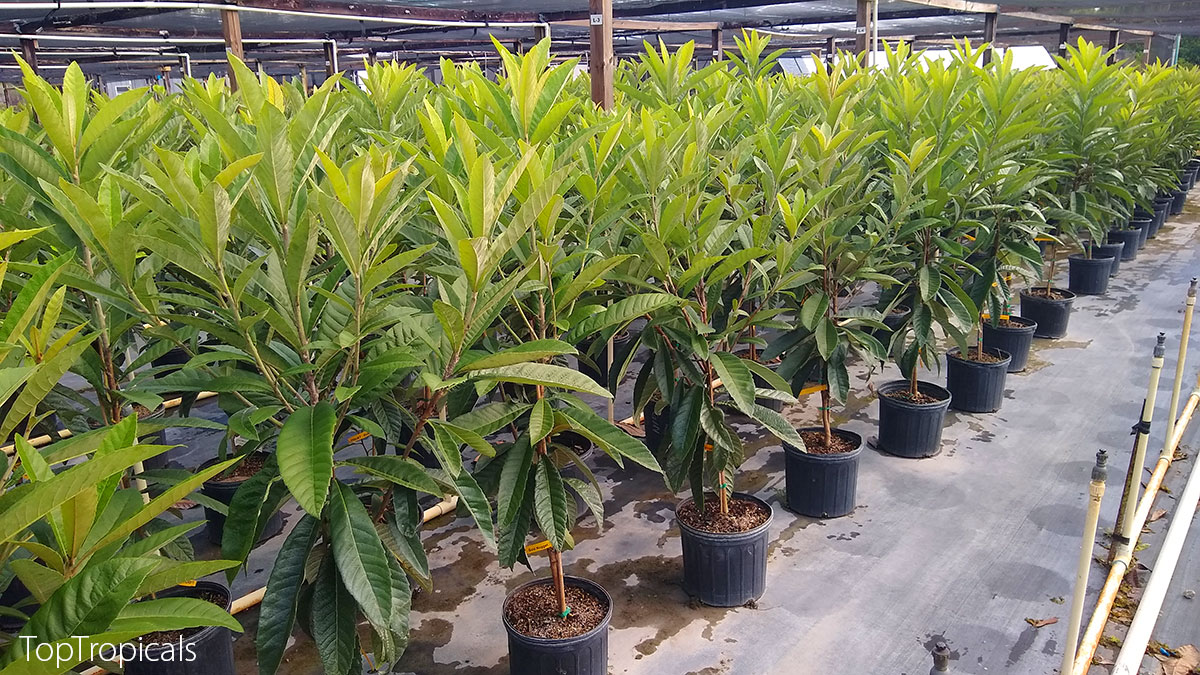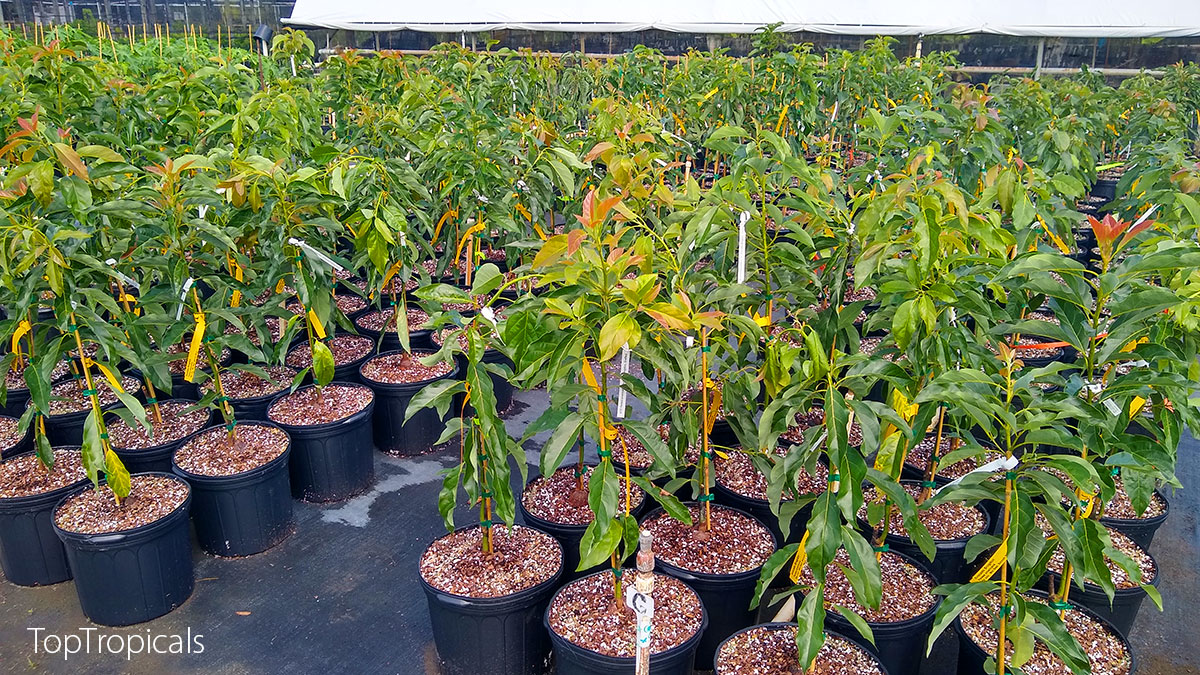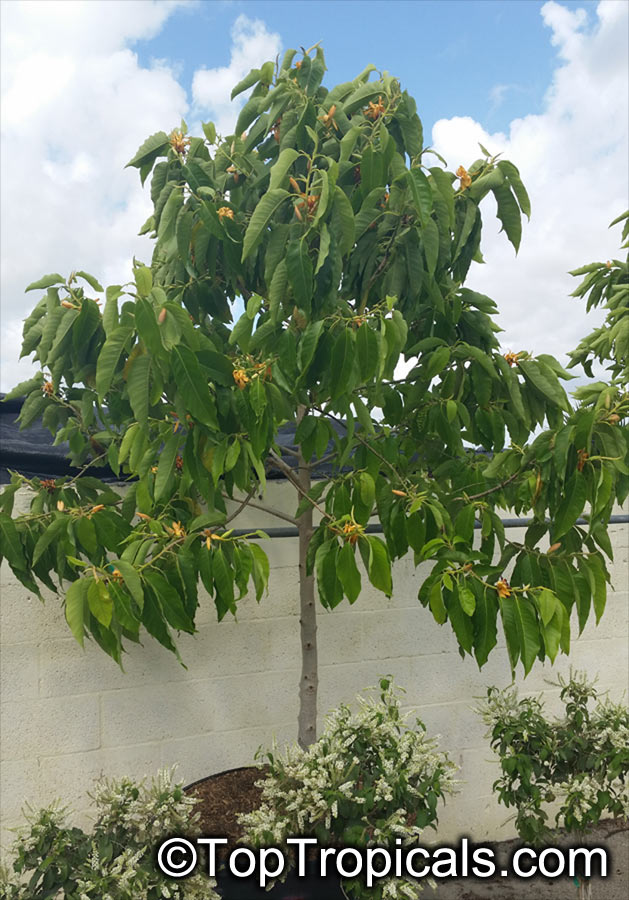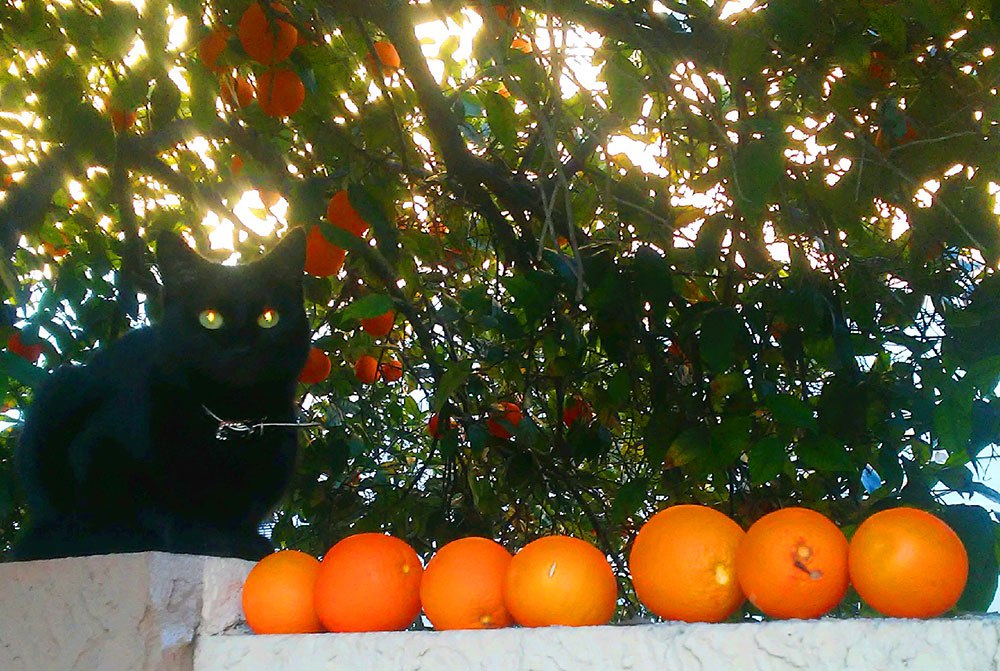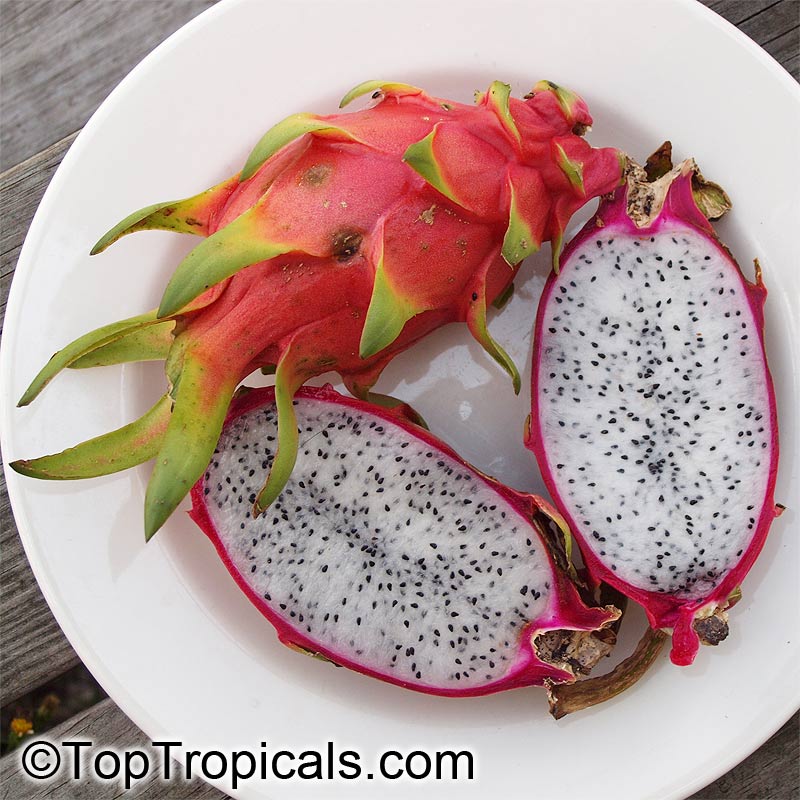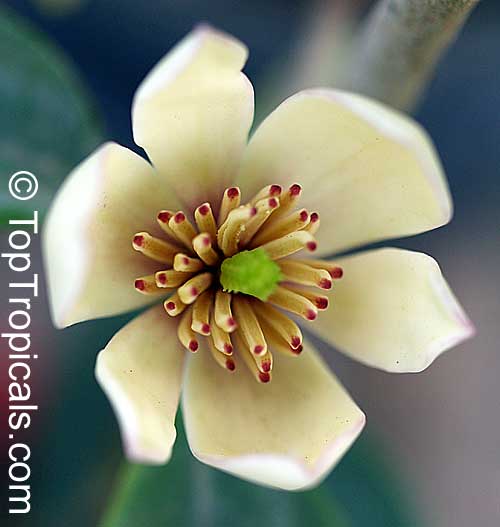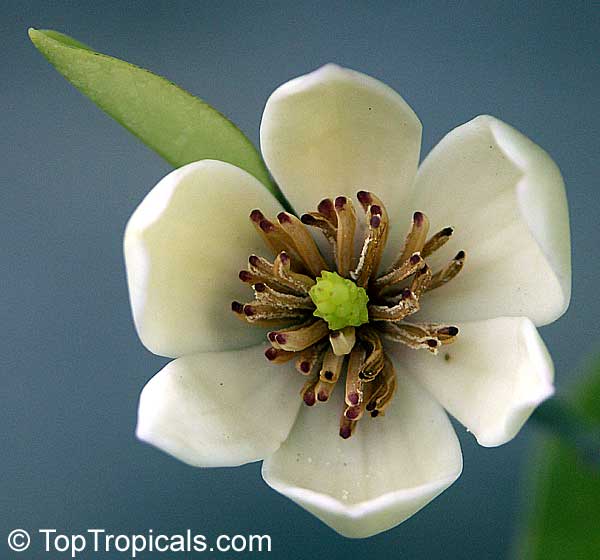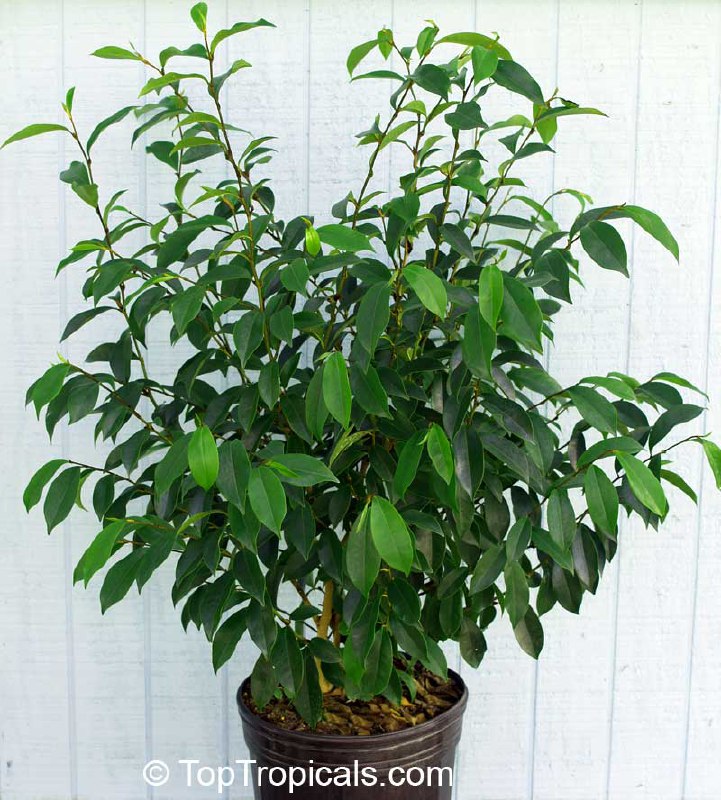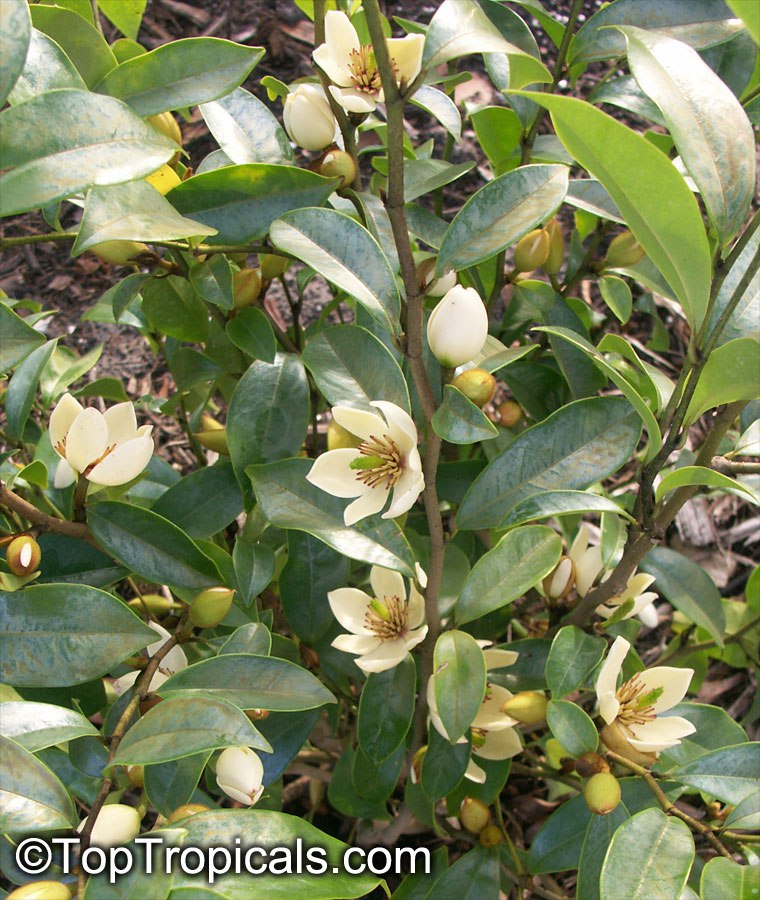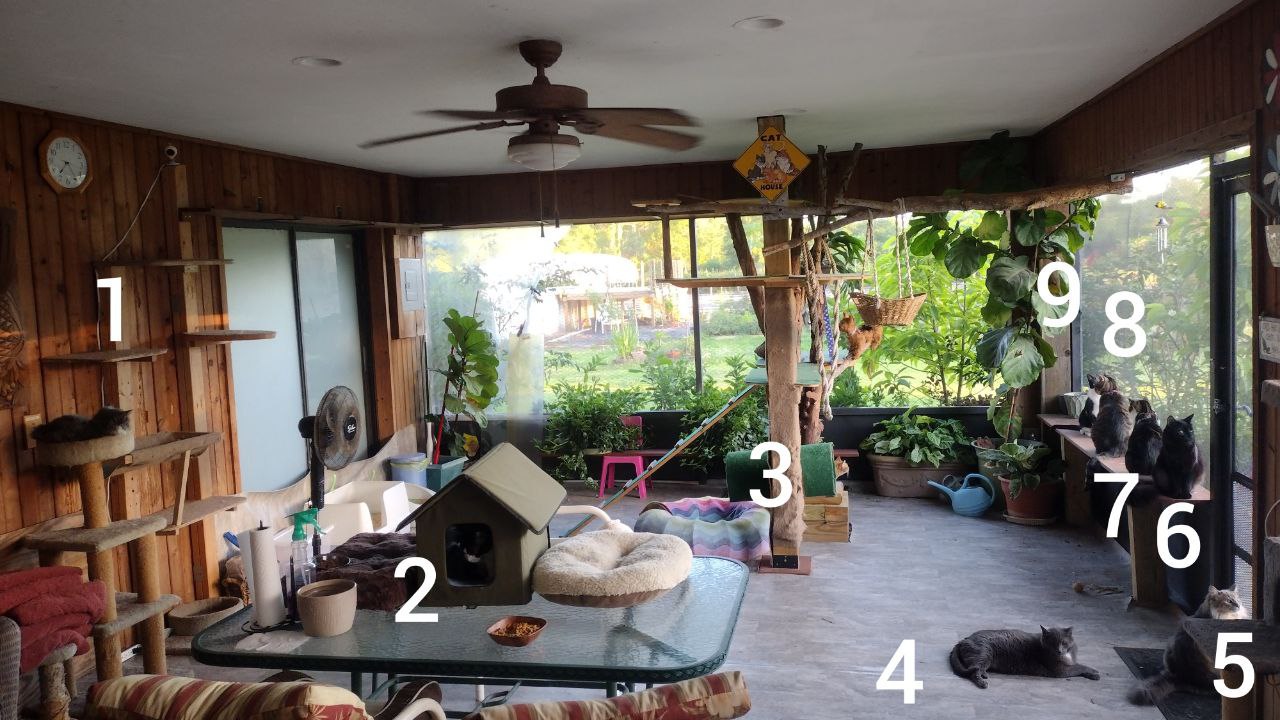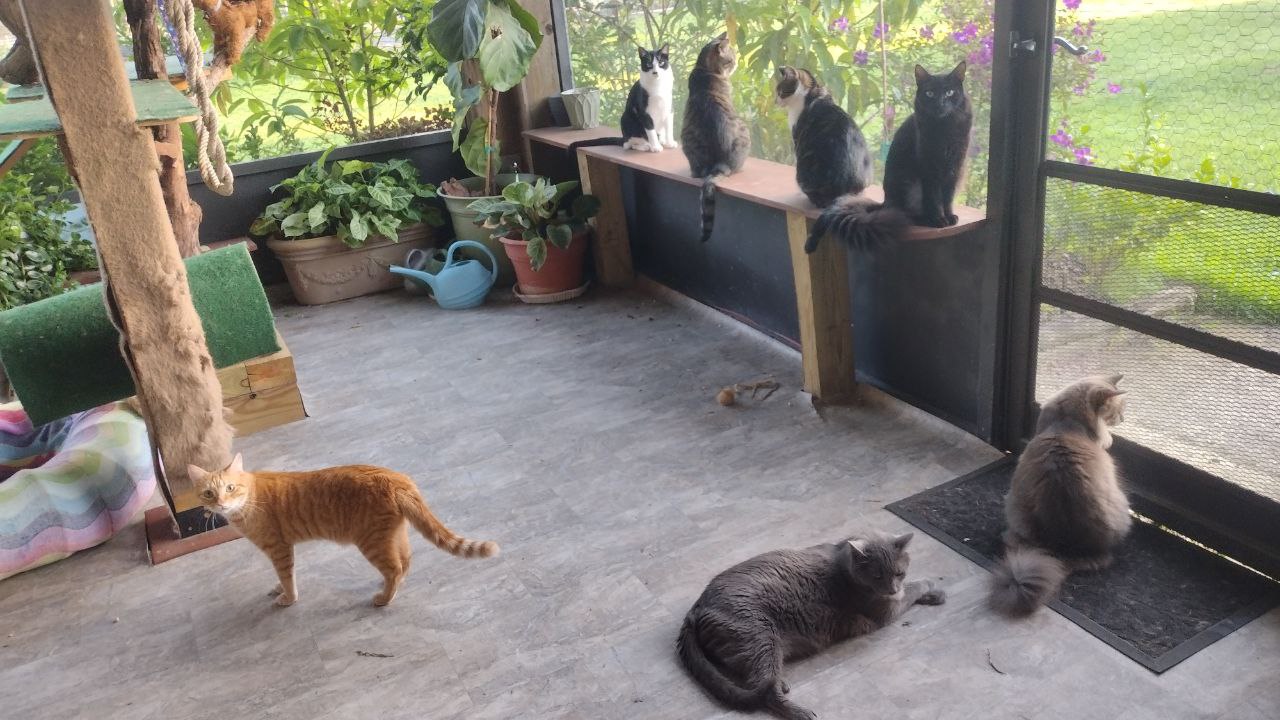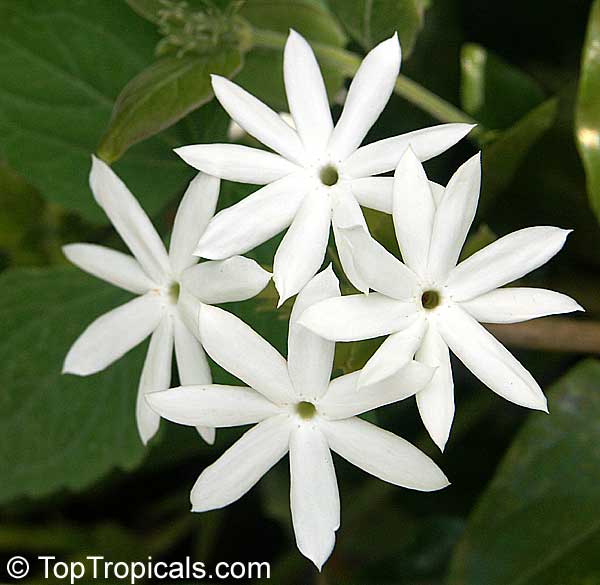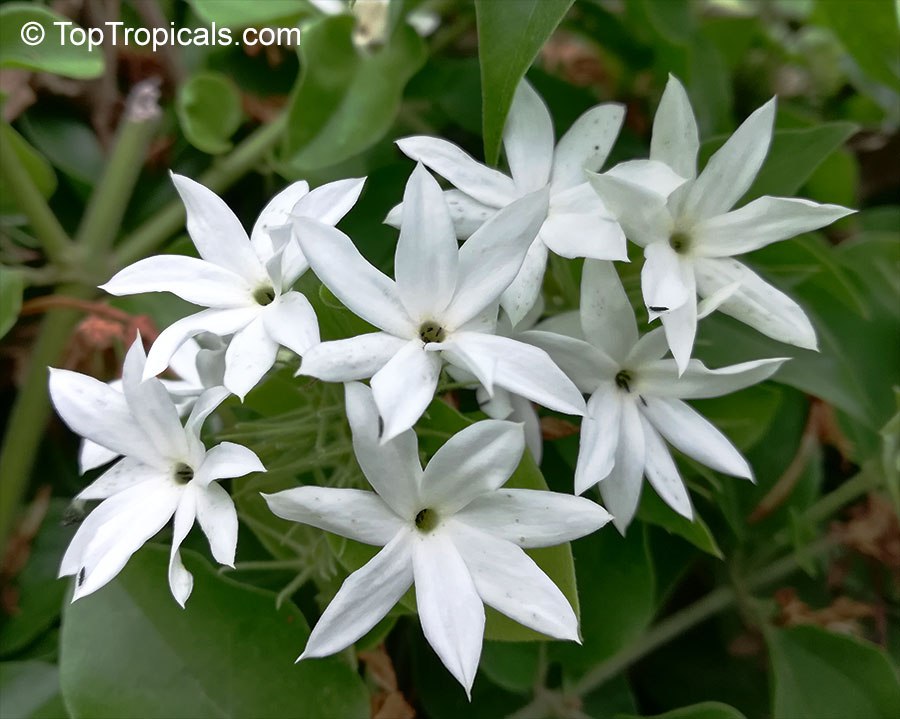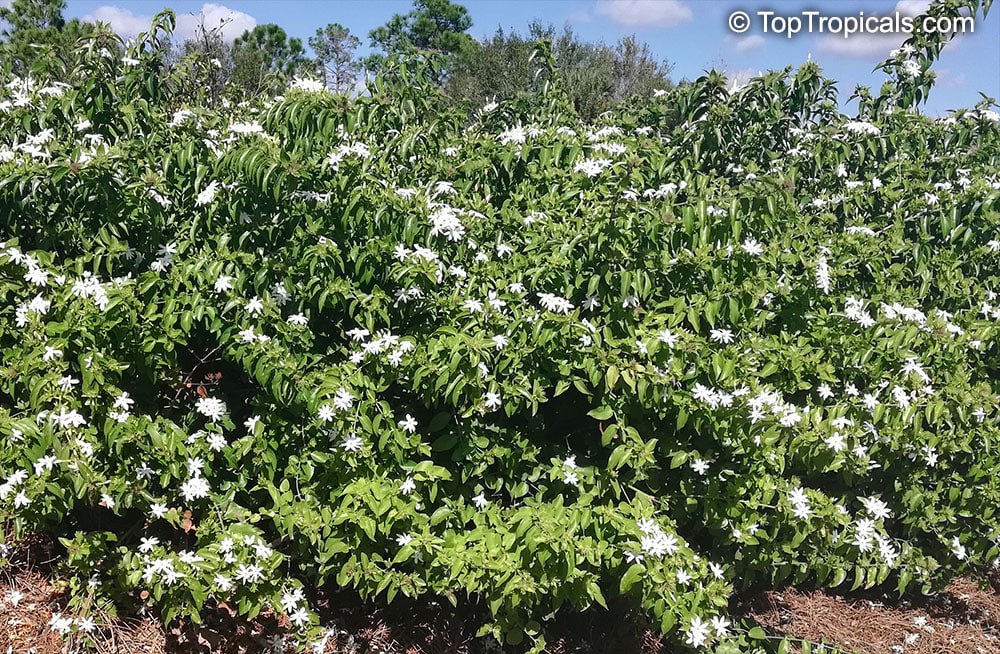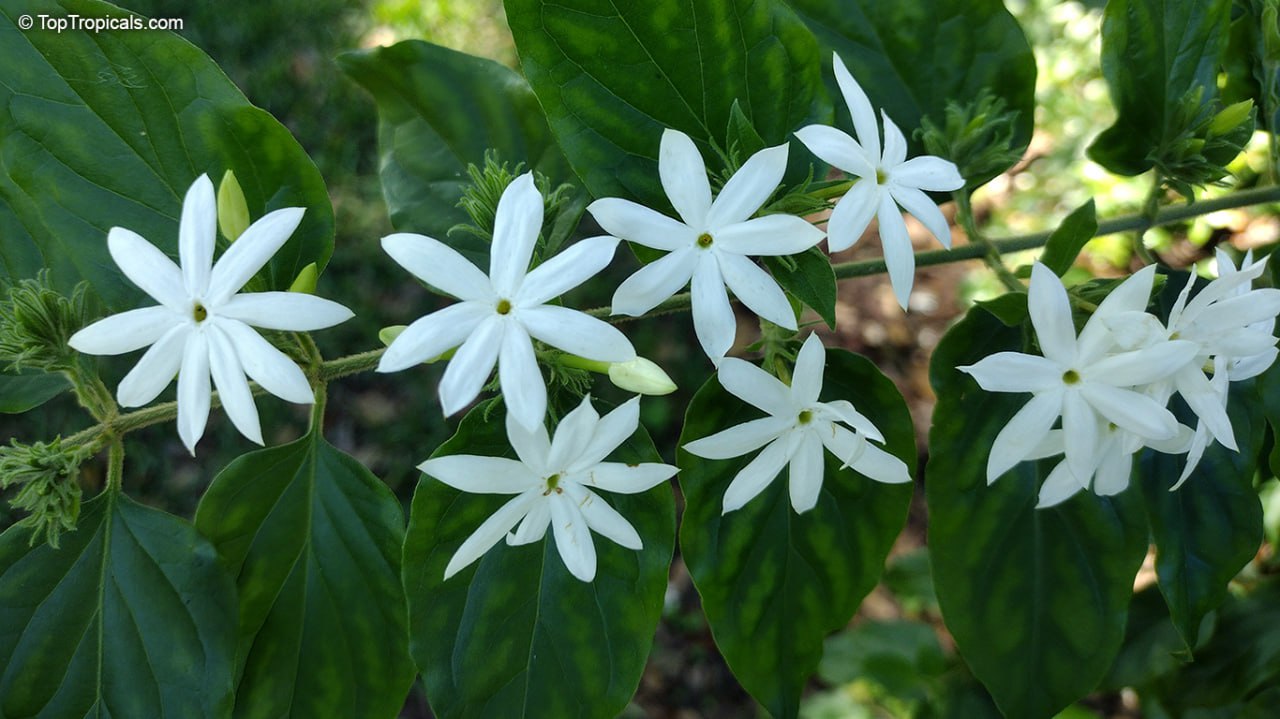Garden Blog - Top Tropicals
Can Frangipani be a vine? How to bring fragrance into your garden
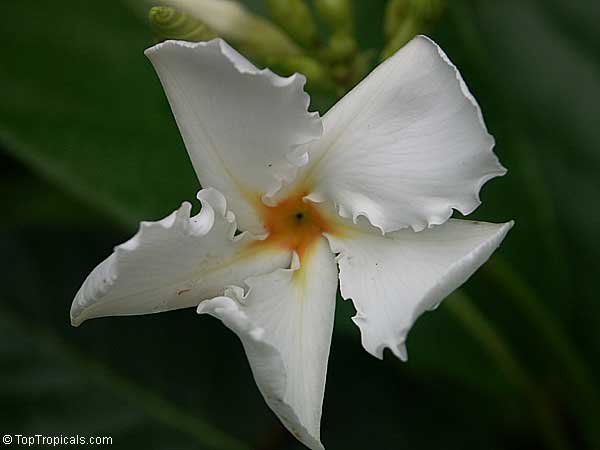
Chonemorpha fragrans, Frangipani vine
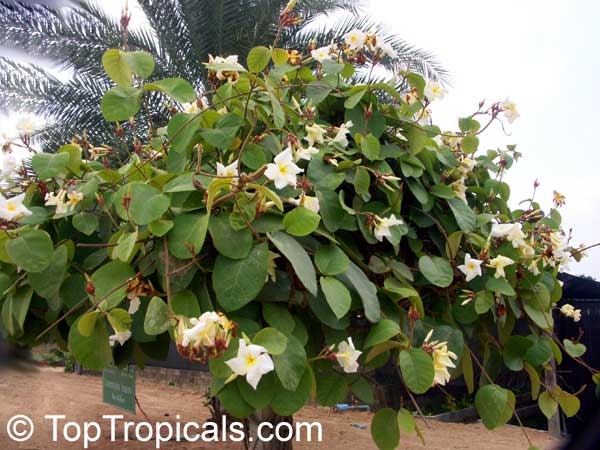
Chonemorpha fragrans, Frangipani vine
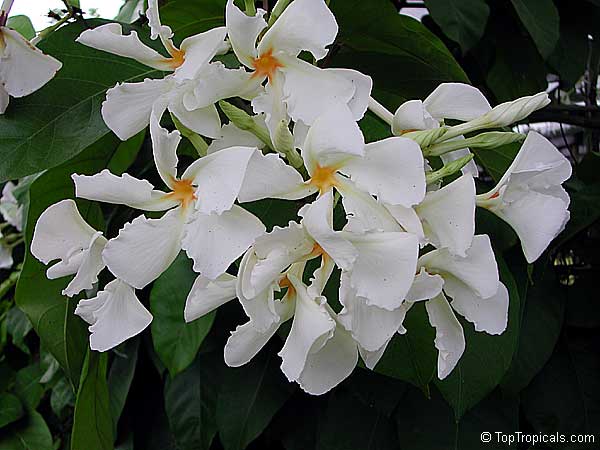
Chonemorpha fragrans, Frangipani vine
Chonemorpha fragrans, or Frangipani vine, is a large woody tropical liana with clusters of large, perfume-fragrant flowers and lush green foliage. It is close related to perfumed Plumeria - Frangipani.
- 🌸 Chonemorpha's intoxicating scent fills the air, creating a sensory delight for all nearby.
- 🌸 Leaves reaching up to 12 (!) inches add to its allure.
- 🌸 Being a large woody vine, Frangipani vine requires sturdy support, making it a majestic addition to any garden or indoor space.
- 🌸 Takes both sun or shade. Full sun is essential for profuse blooming.
🛒 Buy Frangipani Vine
#Perfume_Plants #Container_Garden
🏵 TopTropicals
Date:
When Bigger means Better
Everybody loves shopping online nowadays, and plants are no exception. Buying plants by mail order is not uncommon anymore; it only takes one click, and luckily, there are many sources - from big shopping malls like Amazon to small backyard nurseries that sell their seedlings on eBay or Facebook - all delivered to your door. But plants are alive... So when doing your online plant shopping, you must ensure that you fully enjoy your experience and are happy with a healthy plant that a) doesn't die; b) recovers quickly; and c) starts growing fast, so you can see flowers and fruit as soon as possible.
The rule of thumb for shipping plants: bigger plants undergo shipping better, experience less stress, less leaf drop, and recover quicker than plants with smaller root systems. So when it comes to buying plants online, the bigger, the better. Unfortunately, many mail-order plant sources may sell you a tiny twig that has very few chances of surviving. Shipping is very expensive today, so shipping a bigger size plant may cost more than the plant itself.
Below is a piece of advice on how to make the best plant selection for your garden...
Photo above: Loquat trees in 3 gal containers.
5 important rules on how to buy trees online
1. Find a source with bigger plants. Check reviews, ask friends
for recommendations, inquire from the company about the size of their plants
and how they pack their plants for shipping.
TopTropicals offers well-established, strong plants with developed root
system, in container sizes 1, 3, 7, 15 gallon, directly from a tropical
Florida growing farm. Our unique plant-packing techniques are state of the art!
2. Price not always reflects the size and quality of the plant
TopTropicals offers many deals, discounts and sales, while still
providing the biggest and strongest plants grown in real tropical conditions.
3. Most fruit trees must be grafted to produce good fruit. Make
sure you are not purchasing a seedling when it comes to Mango, Avocado,
Peaches and some other trees with named varieties that don't come true to seed.
TopTropicals offers only grafted - Mango,
Avocado and a large number of other tropical cultivars.
4. Pick up when possible from the nursery your ordered from, or
get a delivery, instead of shipping the plants. A drive to the nursery will save you more time and money in the
future, plus you can hand-pick the biggest and healthiest specimens.
TopTropicals is open 7 days a week for your convenience. Visit our Ft Myers Garden Center or Sebring Farm to select the biggest plants.
5. Take advantage of X-Large size plant material if you live
outside the tropical zone and are trying to zone-push your tropical garden.
Bigger plants will establish faster and have more chances to survive cold winters.
Again, it will save you money in a long run (although bigger plants may be
more expensive, but their survival rate is much higher when it comes to cold
nights).
TopTropicals offers X-Large flowering and fruiting trees (7-15-25
gallons), and most of the varieties you see in our online
store can be custom-ordered in big sizes. Delivery and installation
available.
Photo above: Avocado trees in 7 gal containers.
Photo above: Magnolia champaca - Joy Perfume Tree in 25 gal container.
Cat of the Day - Klaksa
Did you know that a black cat brings good luck? Klaksa is totally black, just like George. We are still waiting for the load of luck! Good night, sleep tight🌜
📸 😺 👇 Share your cats in comments!
🐾 More #PeopleCats in our Garden:
PeopleCats.Garden
🏵 TopTropicals
What does a dragon taste like? Does Dragon Fruit come from a monster cactus? Learn why you need to grow your own
🔴 You may have tried a Dragon fruit from the store l, but do you know how it grows? On a cactus tree!
🔴 Names: varieties of Hylocereus and Selenicereus - these fruit bearing cactus plants are also called Dragon Fruit or Pitaya.
🔴 Commercially grown fruit sold in a grocery store may be tasteless. You need to grow your own good variety to have tasty, sweet, flavorful fruit!
🔴 Dragon fruit comes in many varieties. Colors of flesh differ: white, pink, dark red and even purple. The outside of the fruit can be red/pink or yellow.
🔴 In commercial groves, Pitayas grow like cactus trees, over a strong support - big "umbrella frames" ☂️
🔴 It is an easy plant, with low water needs, takes both sun and semi-shade.
🔴 Our favorite variety is Yellow Dragon Fruit Palora, (Selenicereus megalanthus). It is the sweetest and has the most flavor of all. We shared some recipes earlier.
🔴 Can be grown in container with a wooden trellis. And the flower is beautiful, too!
📚 Learn more about Dragon Fruit
🍹 Recipe: What to do with a Dragon fruit?
🛒Grow your own Tasty Dragon Fruits
#Food_Forest #Recipes #Nature_Wonders #Dragon_Fruit
🏵 TopTropicals
What does a dragon taste like? Does Dragon Fruit come from a monster cactus? Learn why you need to grow your own
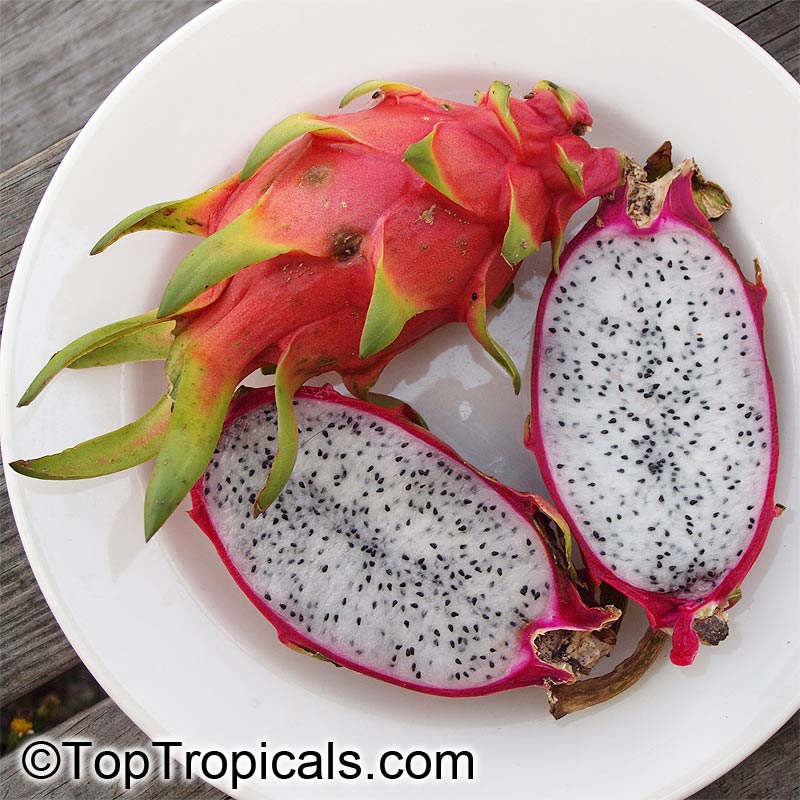
Hylocereus and Selenicereus Dragon Fruit or Pitaya
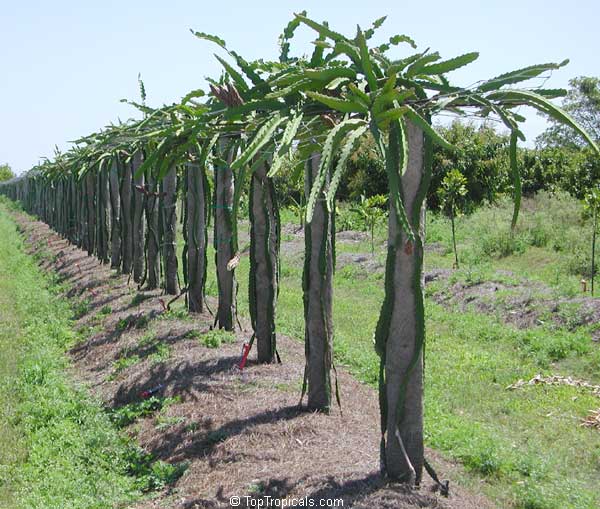
Hylocereus and Selenicereus Dragon Fruit or Pitaya trees on trellis
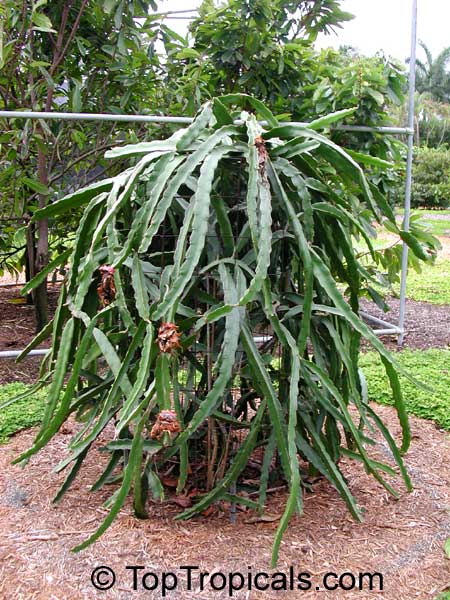
Hylocereus and Selenicereus Dragon Fruit or Pitaya on trellis
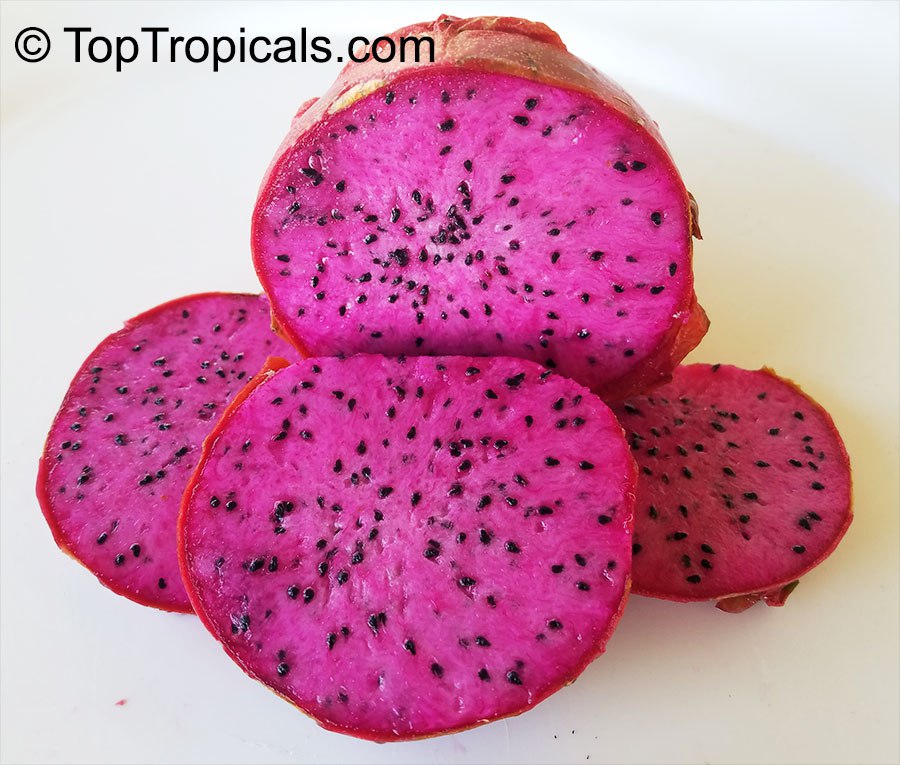
Hylocereus and Selenicereus Dragon Fruit or Pitaya red fruit
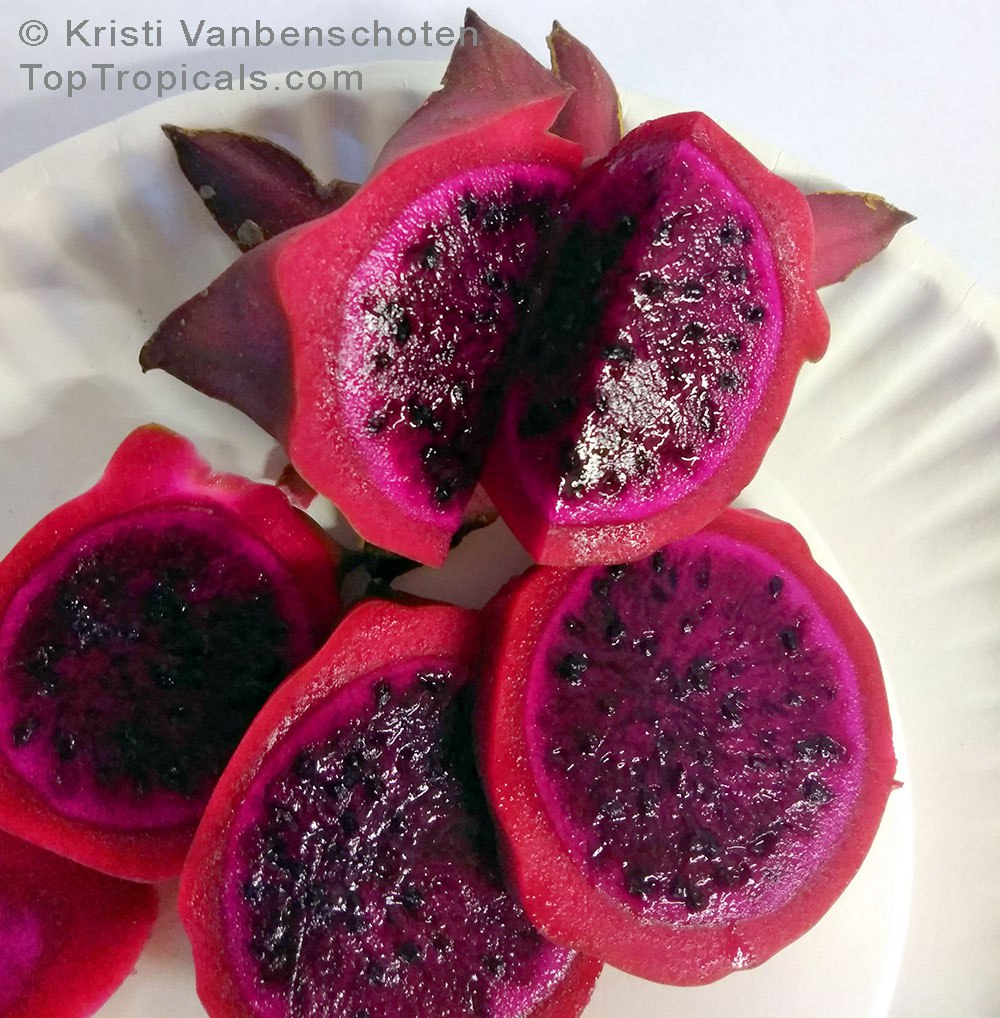
Hylocereus and Selenicereus Dragon Fruit or Pitaya purple fruit
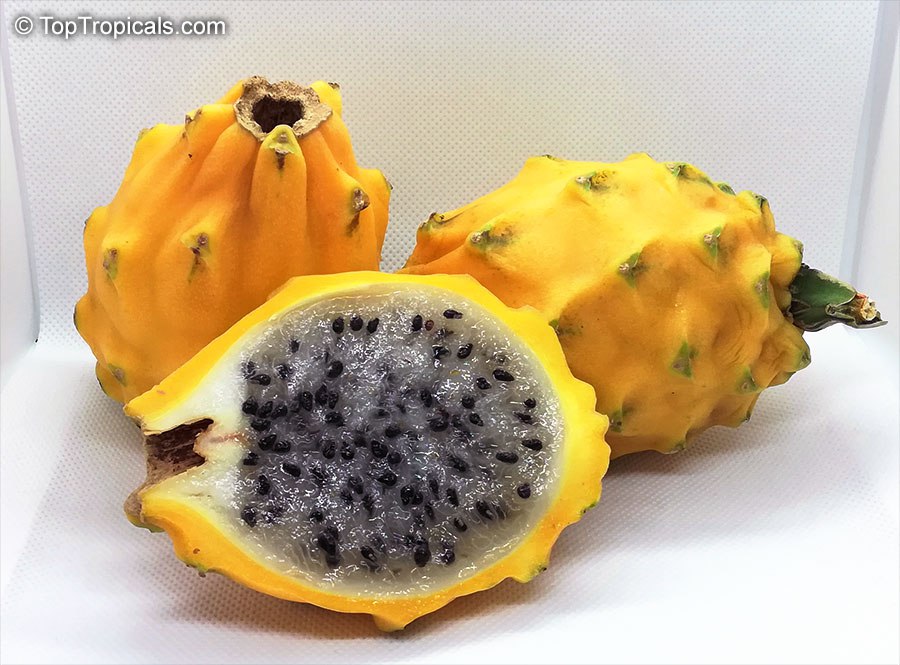
Hylocereus and Selenicereus Dragon Fruit or Pitaya Yellow Parlora
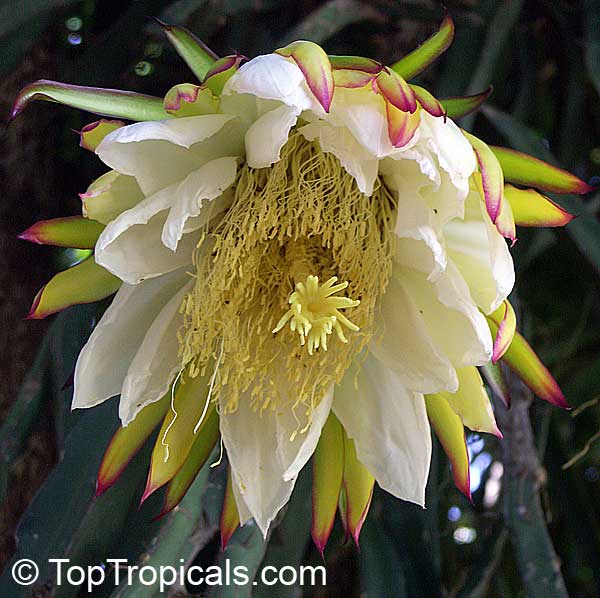
Hylocereus and Selenicereus Dragon Fruit or Pitaya flower
- 🔴 You may have tried a Dragon fruit from the store l, but do you know how it grows? On a cactus tree!
- 🔴 Names: varieties of Hylocereus and Selenicereus - these fruit bearing cactus plants are also called Dragon Fruit or Pitaya.
- 🔴 Commercially grown fruit sold in a grocery store may be tasteless. You need to grow your own good variety to have tasty, sweet, flavorful fruit!
- 🔴 Dragon fruit comes in many varieties. Colors of flesh differ: white, pink, dark red and even purple. The outside of the fruit can be red/pink or yellow.
- 🔴 In commercial groves, Pitayas grow like cactus trees, over a strong support - big "umbrella frames" ☂️
- 🔴 It is an easy plant, with low water needs, takes both sun and semi-shade.
- 🔴 Our favorite variety is Yellow Dragon Fruit Palora, (Selenicereus megalanthus). It is the sweetest and has the most flavor of all. We shared some recipes earlier.
- 🔴 Can be grown in container with a wooden trellis. And the flower is beautiful, too!
📚 Learn more about Dragon Fruit
🍹 Recipe: What to do with a Dragon fruit?
🛒Grow your own Tasty Dragon Fruits
#Food_Forest #Recipes #Nature_Wonders
🏵 TopTropicals
